Acotiamide
Uses
Acotiamide Uses Acotiamide is used in the treatment of functional dyspepsia. It helps relieve symptoms such as bloating after a meal, pain or discomfort in the upper abdomen, and early satiety.
How it Works
How Acotiamide works Acotiamide enhances the release of acetylcholine, a chemical that can boost intestinal motility.
Side Effects
Common side effects of Acotiamide include diarrhea, increased prolactin levels in the blood, constipation, nausea, vomiting, rash, hives, increased white blood cell count, abnormal liver function tests, and increased triglyceride levels in the blood.
Expert Advice
- Acotiamide should be taken before meals.
- Always complete the prescribed course of treatment as advised by your doctor, even if you start to feel better.
- Make lifestyle changes such as:
- Weight loss if you are overweight.
- Avoiding smoking.
- Avoid foods that may aggravate your symptoms, including:
- Coffee
- Citrus fruits
- High-fat foods
- Spicy foods
- Pickled foods
- Inform your doctor if you are pregnant, planning to become pregnant, or breastfeeding.
Related Medications
Acotiamide 100mg

₹190
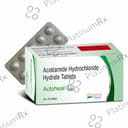
₹93
MRP ₹186
Acotiamide 100mg

₹195.9

₹93
MRP ₹186
Acotiamide 100mg
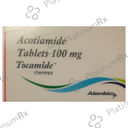
₹232.7

₹93
MRP ₹186
Acotiamide 100mg

₹190

₹93
MRP ₹186
Acotiamide 100mg

₹198

₹93
MRP ₹186
Acotiamide 100mg

₹181

₹93
MRP ₹186
Acotiamide 100mg

₹270

₹93
MRP ₹186
Acotiamide 100mg
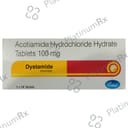
₹160

₹93
MRP ₹186
Acotiamide 100mg

₹240

₹93
MRP ₹186
Acotiamide 100mg

₹190

₹93
MRP ₹186
Acotiamide 100mg
₹120

₹93
MRP ₹186
Acotiamide 100mg
₹86.9

₹93
MRP ₹186
Acotiamide 100mg

₹195

₹93
MRP ₹186
Acotiamide 100mg

₹214

₹93
MRP ₹186
Acotiamide 100mg

₹198

₹93
MRP ₹186
Acotiamide 100mg

₹208.9

₹93
MRP ₹186
Acotiamide 100mg

₹165

₹93
MRP ₹186
Acotiamide 100mg

₹93
MRP ₹186
Acotiamide 300mg
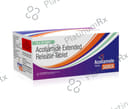
₹270
MRP ₹421.9
Acotiamide 300mg

₹347.8

₹270
MRP ₹421.9
Acotiamide 300mg

₹650

₹270
MRP ₹421.9
Acotiamide 300mg

₹380

₹270
MRP ₹421.9
Acotiamide 300mg
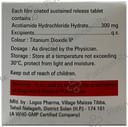
₹380

₹270
MRP ₹421.9
Acotiamide 300mg
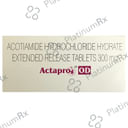
₹454.7

₹270
MRP ₹421.9
Acotiamide 300mg

₹348

₹270
MRP ₹421.9
Flat ₹100 off on first app order | Use Code: APP100 |
Flat ₹100 off on first app order
USE CODE: APP100

Download Now